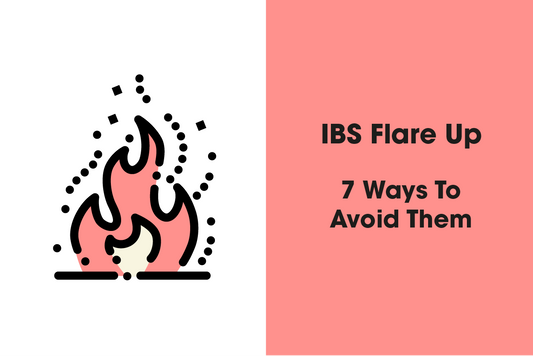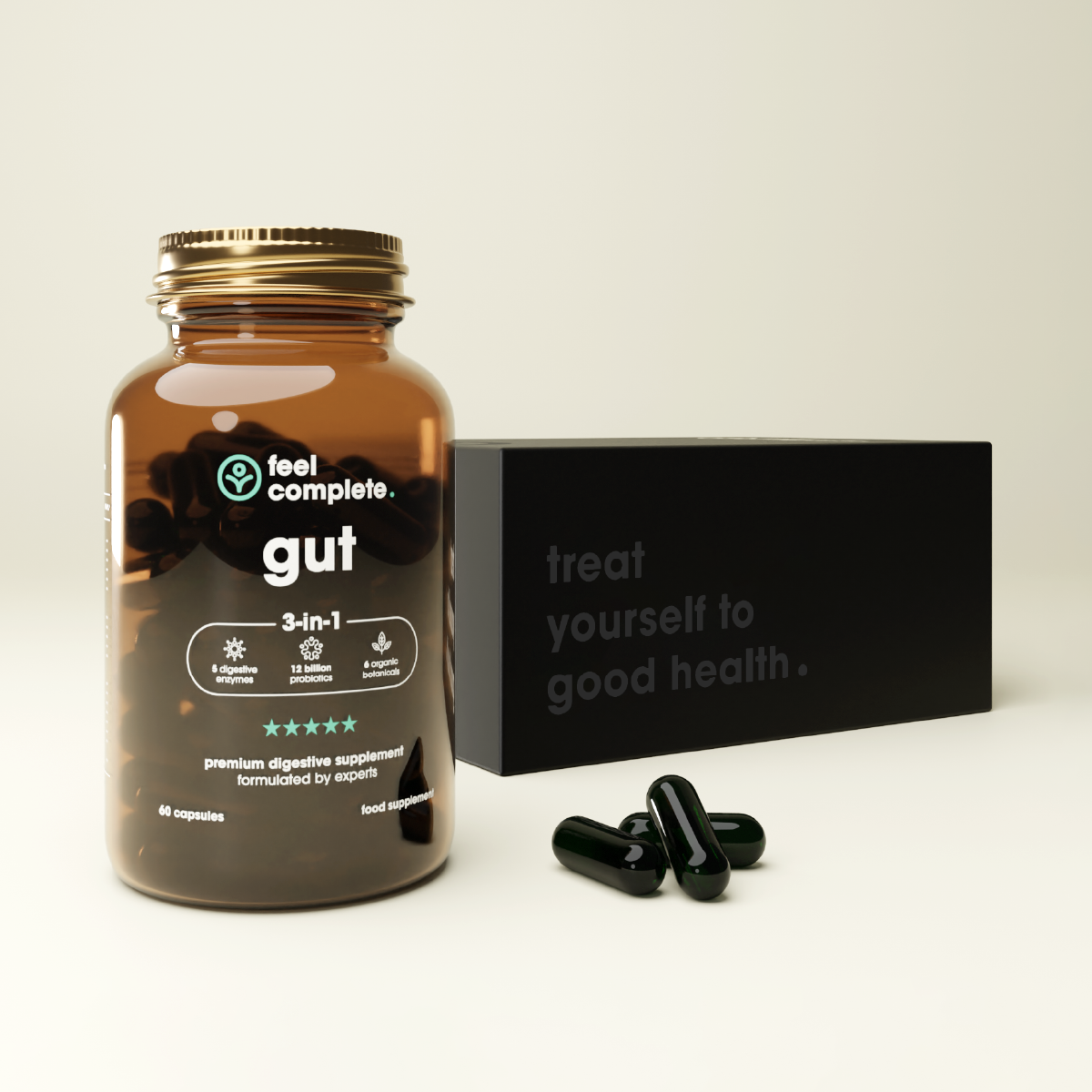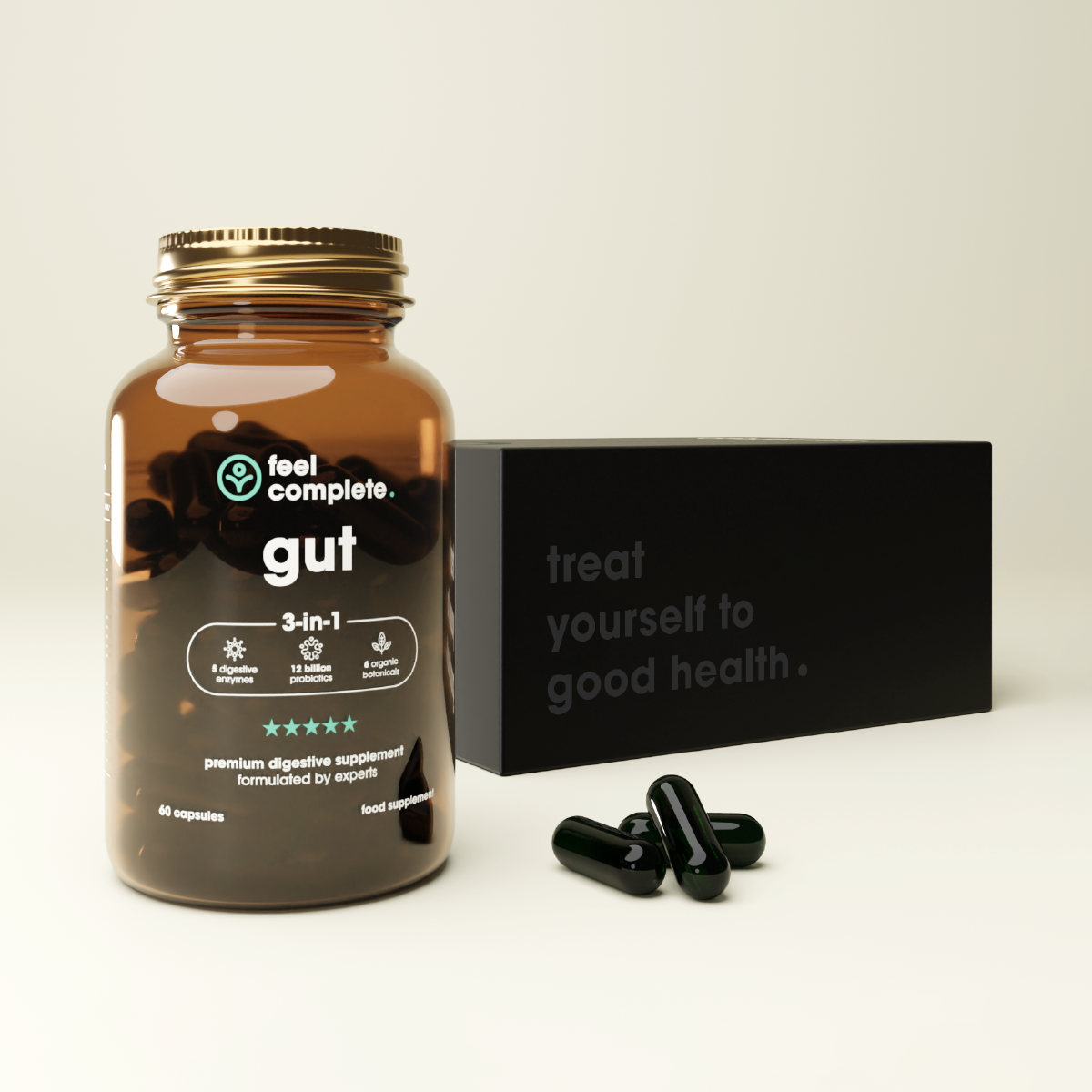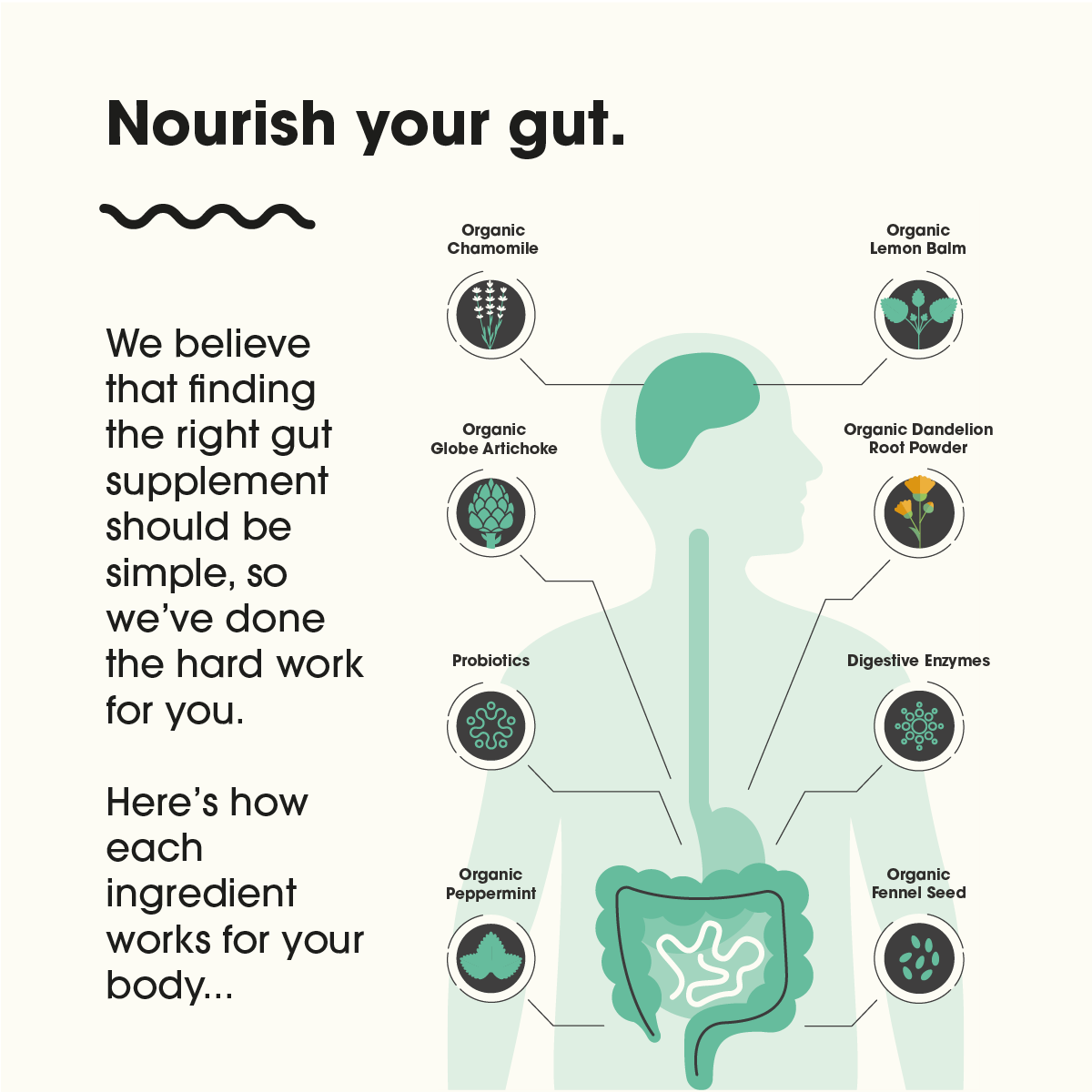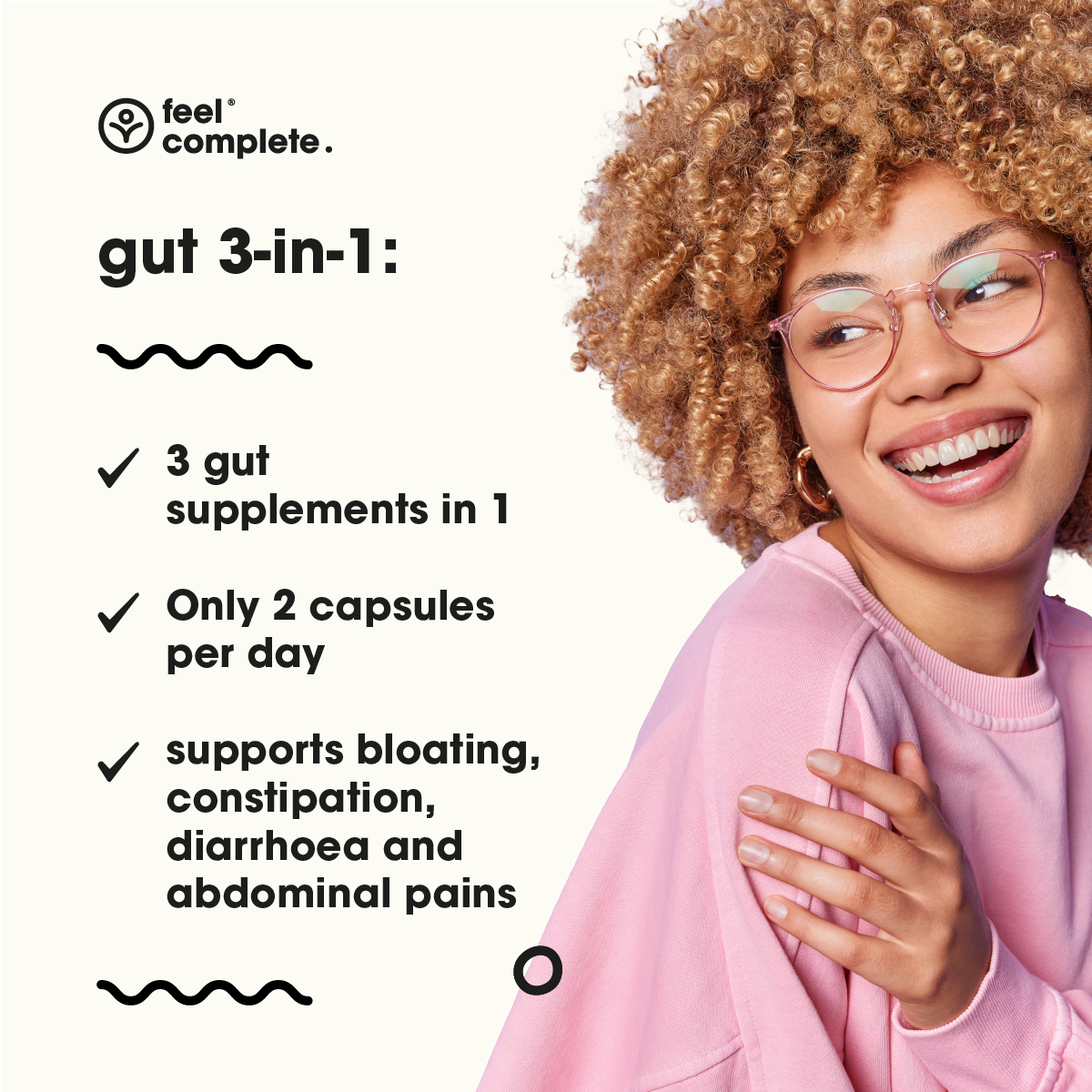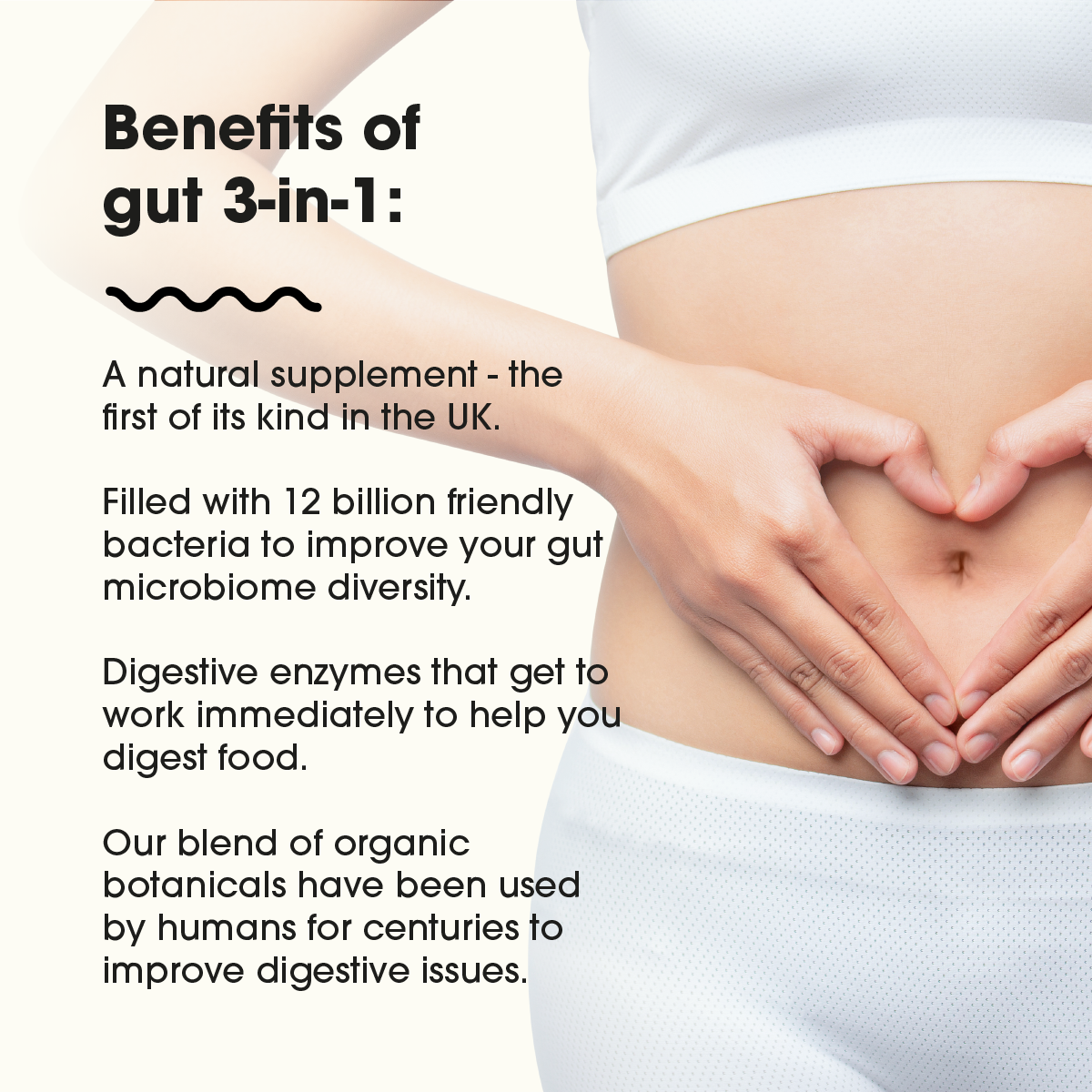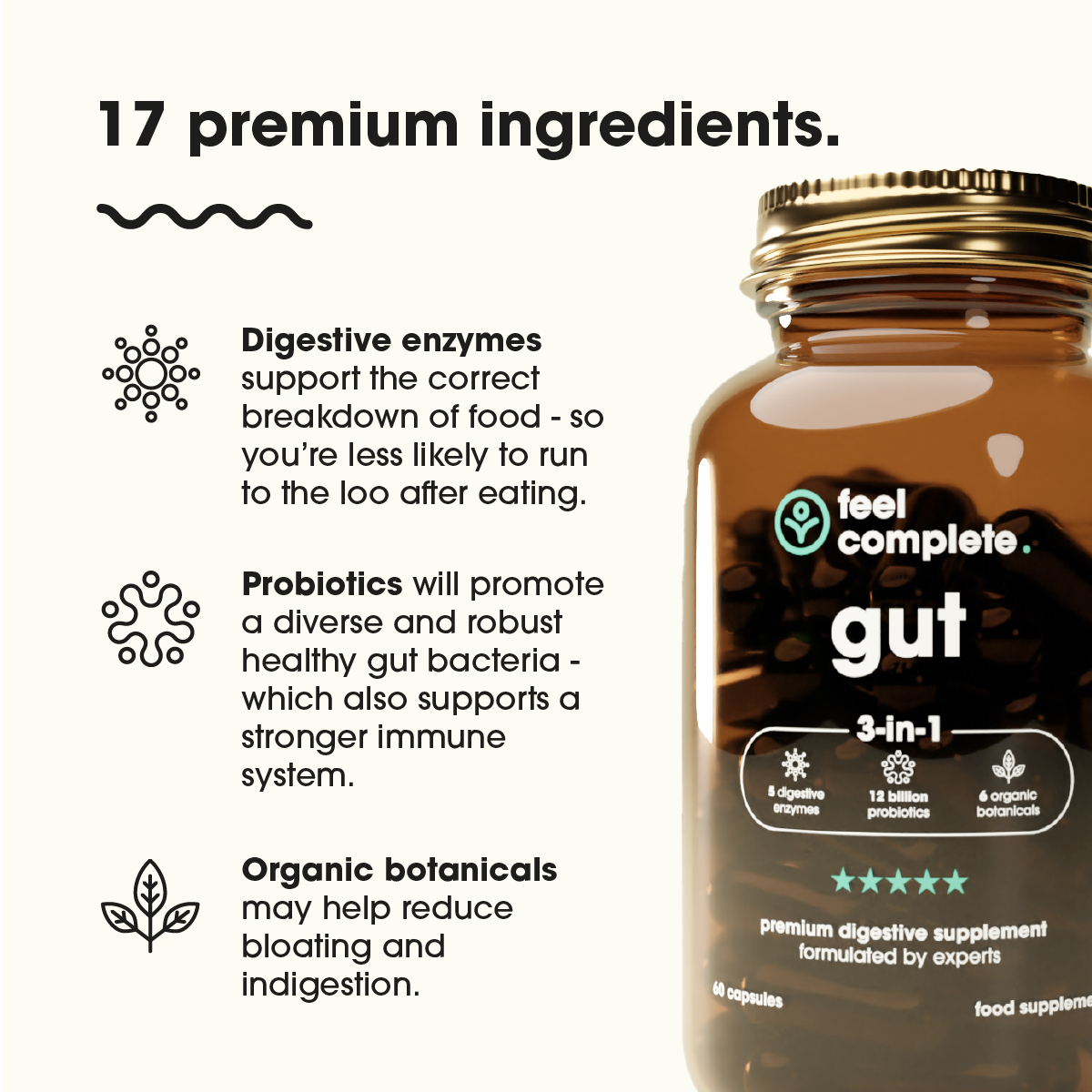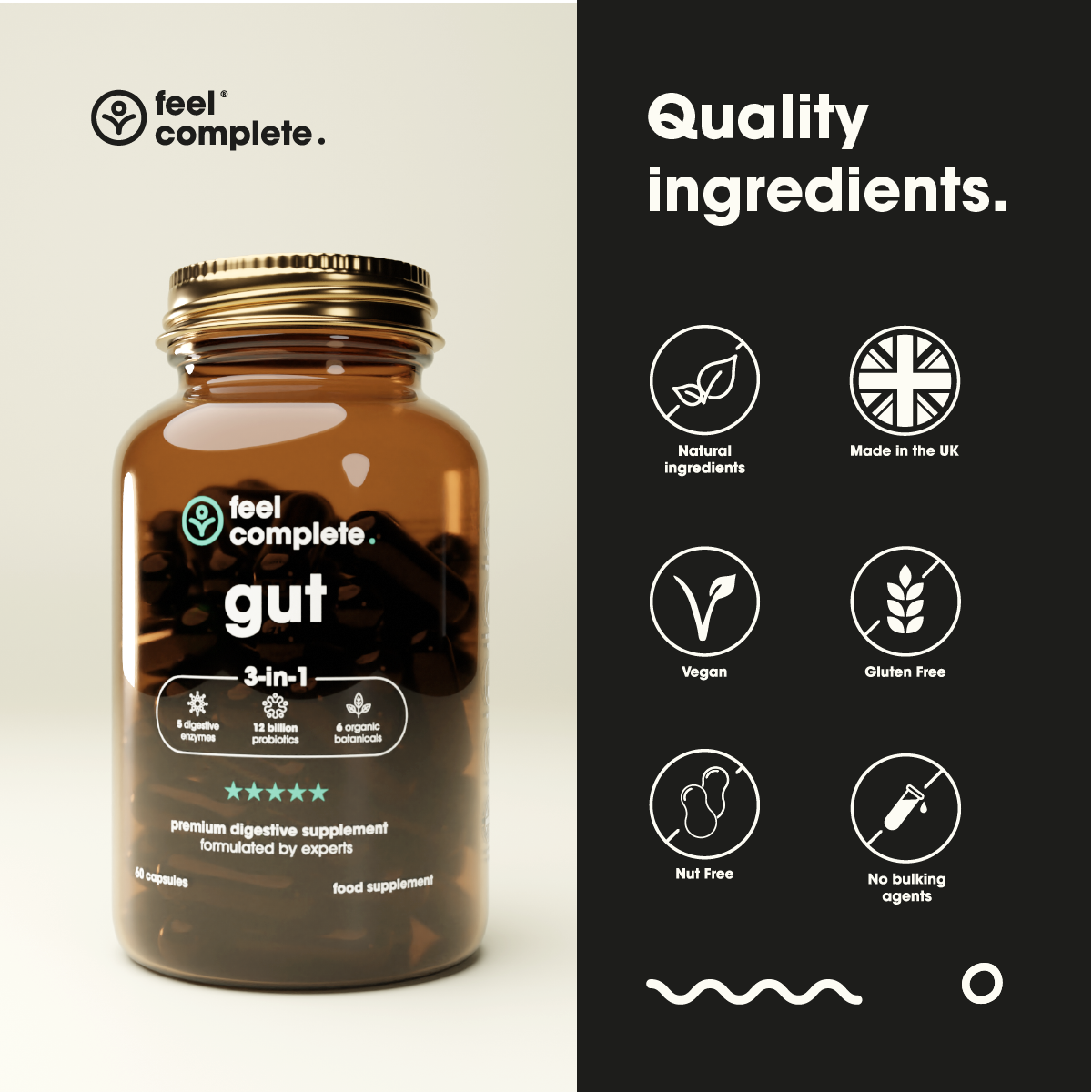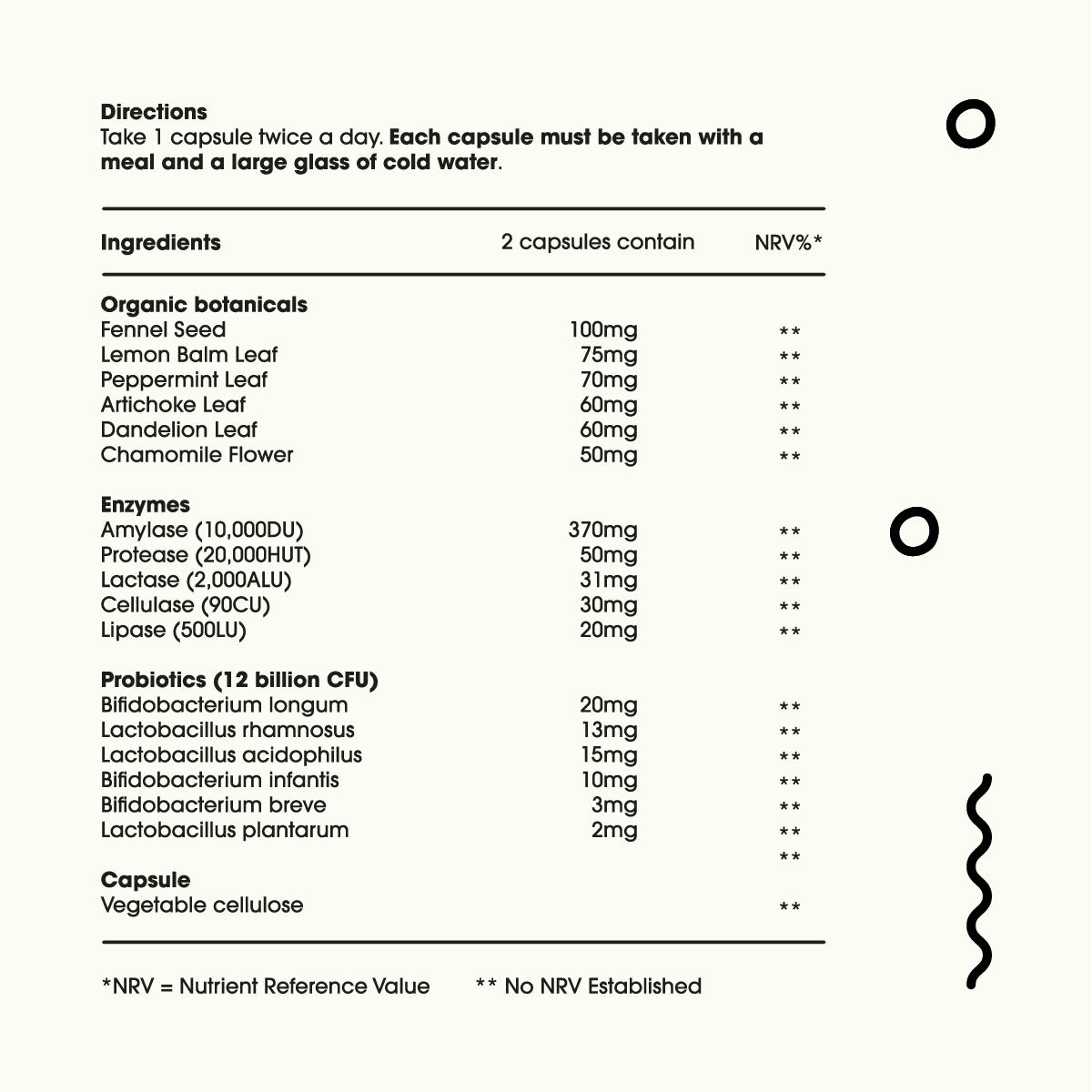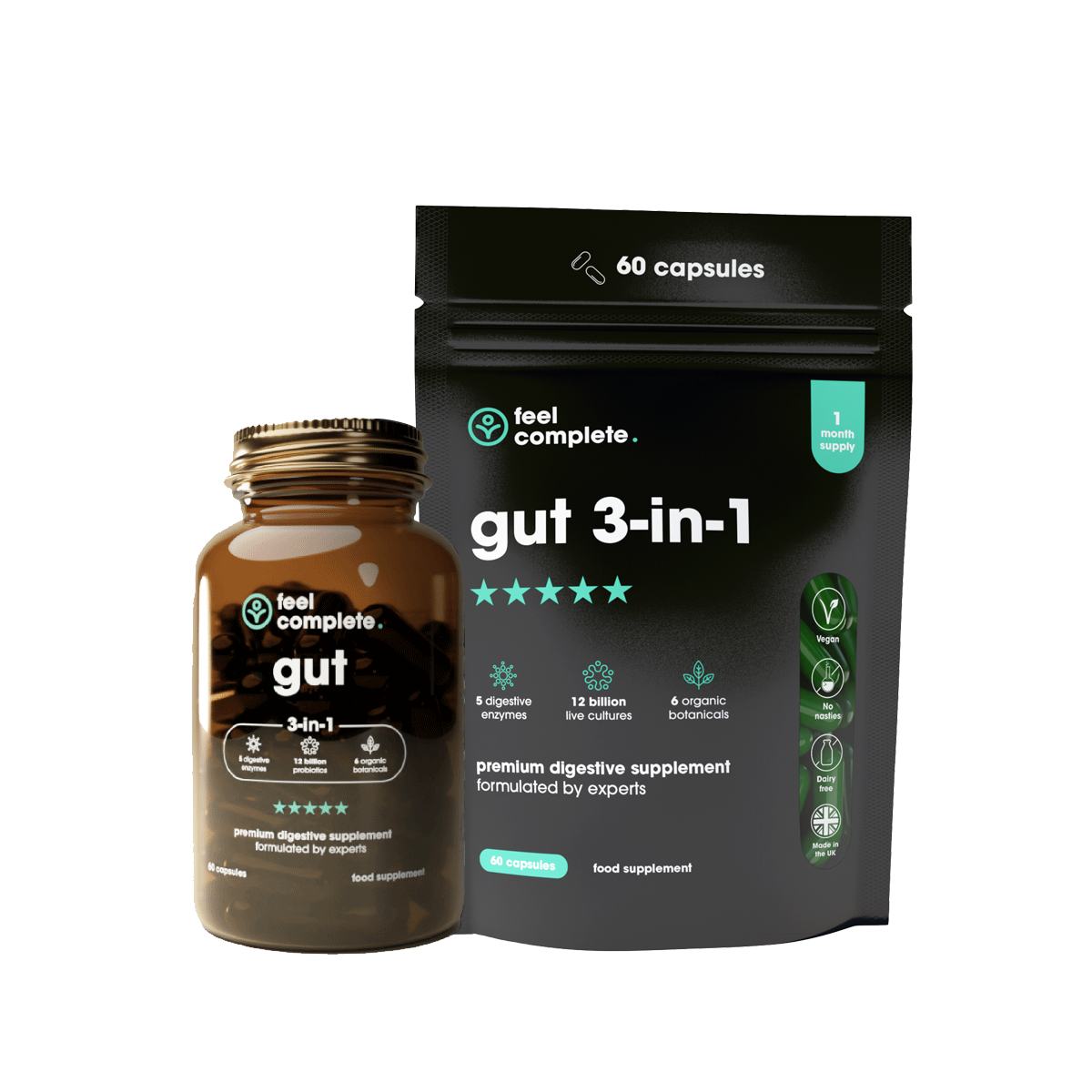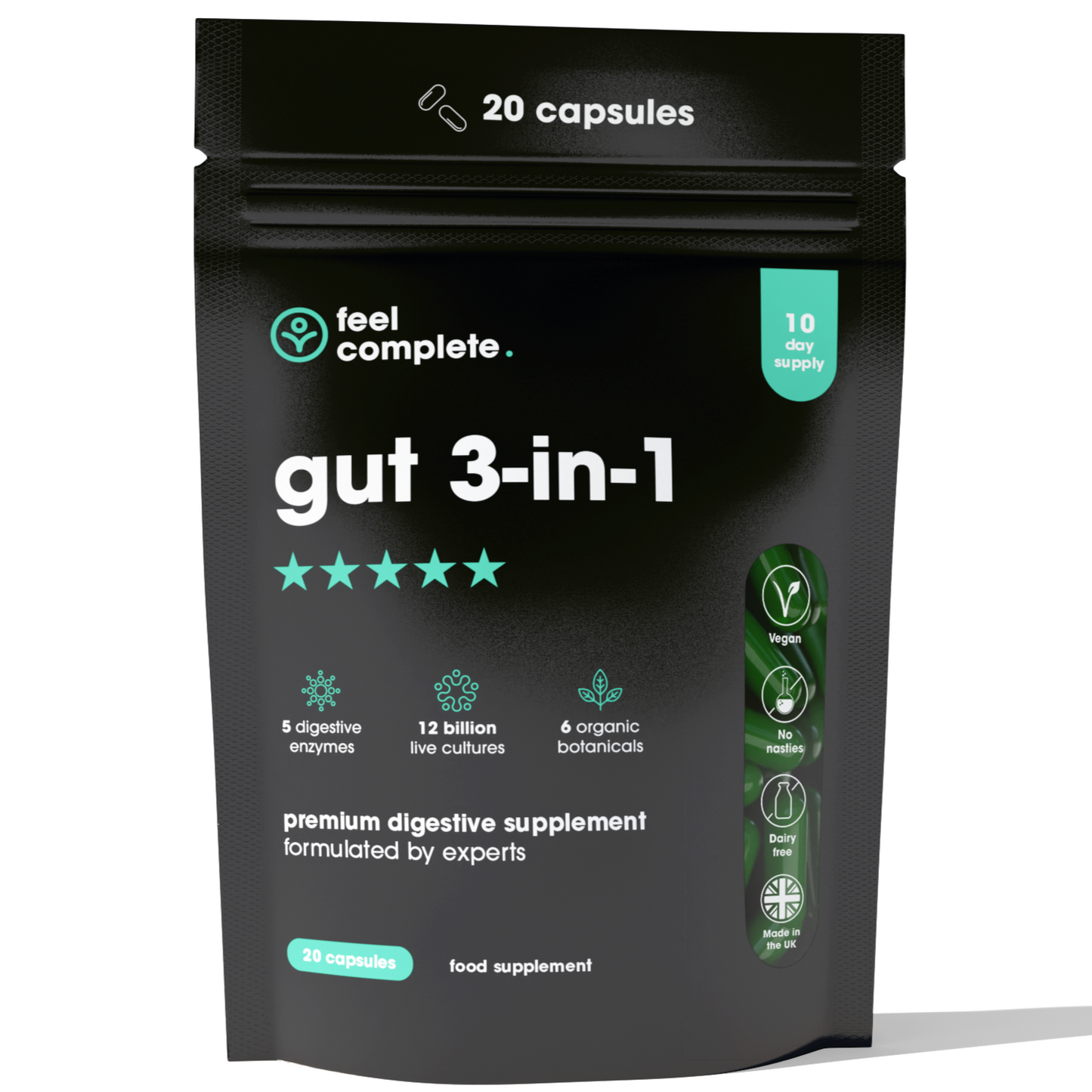Your body is an incredible system and your gut is the centre point of your overall health. And just as there are changes to your gut health during your period, there are also changes to your gut during perimenopause and menopause.
👉Perimenopause is when symptoms of menopause have started but you still get your periods
👉🏾Menopause is when you've not had your period for 12 consecutive months and marks the end of fertility
These natural changes are regulated by hormones but some of the symptoms associated with them could be a sign of hormonal imbalance. And this where the gut plays a big role.
What happens in the gut influences what happens to the rest of your body. Naturally, by paying attention to your gut health, you will support these hormonal changes during your menopause.
Perimenopause & menopause
Like the monthly cycle, perimenopause and menopause are a natural process that every woman will go through. Before we take a look at ways you can support your gut health during this period of your life, let's take a look at common symptoms associated with both perimenopause and menopause.
Keep in mind that the following changes in your gut may be triggered by changing hormone levels. Having said that, if they are new and persistent, please discuss with your GP as there may be underlying conditions linked with them.
Symptoms of menopause and perimenopause
Constipation - due to hormone shifts, it's common for women in perimenopause or menopause to have slower bowel movements. With that said, it's important to know that constipation can have a root cause, which is often poor diet, stress (the digestive system slows down in times of stress), and leading a sedentary lifestyle.
Constipation can also be caused by some medications. So while perimenopause and menopause could worsen things, the root cause/s may be something entirely different.
Diarrhoea - another common symptom during perimenopause and menopause is diarrhoea. It's believed this may be due to an increase in cortisol levels or hormonal imbalance. This may also be accompanied by abdominal pain.
Abdominal pain - imbalances in the hormones oestrogen and progesterone can lead to digestive issues such as abdominal pain. This can also from slow digestion, changes in your gut microbiome, or an issue with the gut lining called leaky gut, which we'll cover below.
Bloating - are your clothes not fitting well any more? Or perhaps they do fit but become a little tight by the end of the day? This can have different causes including certain foods not correctly digesting, water or gas retention, or the changing levels of hormones.
Heartburn - perimenopause and menopause can both trigger or worsen heartburn. Upper abdominal pain and uncomfortable burning sensation can be due to different things including the consumption of coffee, alcohol, spicy foods, stress and anxiety or smoking. Another common reason is that changes in hormones like oestrogen during perimenopause and menopause, which affects the production of stomach acid.
Nausea - though not common, nausea can be a possible symptom a woman may experience during perimenopause or menopause. It's commonly linked with hot flashes and headaches.
What exactly happens during menopause?
You know there are “changes” happening in your body but what exactly is going on skin deep? Without getting too lost in the science, here's what is happening during this transition.
A change in oestrogen and progesterone levels as well as the stress hormone cortisol (which increases) are behind menopause. The sex hormone oestrogen, also known as the “master of metabolic homeostasis” (balance), declines in menopause and this has a direct link to your digestive system function.
Gut health and menopause
You already have an idea about how your gut health changes during menopause. But let's take a closer look at what that's like in action:
- Weakening gut lining - when oestrogen starts to change, it can cause the digestive tract tissues to become weak. This is due to oestrogen's role in renewing collagen in the body. And guess where collagen is also found? In the connective tissues in the gut lining! So if all this is making the gut lining weaker it can cause a “leaky gut.” A “leaky gut” is essentially when the gaps in the cells that line the digestive tract become loose, letting in substances that should not go through these linings to get through. These large food particles, bad bacteria and toxins end up in the bloodstream and cause a whole host of issues.
- Food allergies and intolerance - due to this weakened digestive tract, and these gaps being made in the walls of your gut lining, your immune cells will treat these as foreign and give off an immune response. This response, as you may have guessed, is the result of your reaction to certain foods and drinks that are often otherwise healthy and safe. A “leaky gut” can lead to a risk of more food allergies and intolerance.
- Gut microbiome - your gut is full of many good gut microbes called the microbiome and they're important for healthy bowel movements, immune function, blood glucose levels and overall health. These gut microbes can play an important role in menopause as gut microbes regulate circulating oestrogen levels. When the gut microbes are healthy, they support maintaining oestrogen homeostasis, but when a dysbiosis (more bad microbes than good) is present, it can cause a deficiency or an excess of free oestrogen.
Gut support - how to naturally balance your hormones during menopause
As you go from one natural transition of life to another, it's normal to feel less empowered by the unfamiliarity of your new reality. But the good news is that regardless of the changes that are happening, you can optimise your health and feel good as a result.
With the right nutrients and lifestyle changes, you'll be able to better manage your gut symptoms during menopause. With that said, let's take a look at all the healthy and sustainable ways you can enjoy health at this stage of your life.
8 ways to support your gut during menopause
- Support overall gut health with fibre from whole foods such as whole grains. Legumes, beans, potatoes and prebiotics such as garlic, onion, leeks, artichoke, oats unripe bananas and chicory fresh or as a coffee alternative
- Support that gut lining with good-quality supplement collagen powers, the supplement amino acid L-glutamine
- Food intolerance diary - can be a very effective way of understanding any triggers you may have from certain foods, if so remove them for a 4 week period and see if there is any change in your symptoms, while you doing this concentrate on supporting your gut health with gut lining supplement support and a whole foods plant based diet with oily fish as an essential
- Gut microbiome- can be supported through a whole food plant-based diet, full of a rainbow of fruits and vegetables, the key is variety. All the pre and probiotics mentioned, can support building a strong gut microbiome
- Certain strains of probiotics can support the beneficial bacteria in menopause and these include Lactobacillus acidophilus, which can be found at a dose of 3 billion in Feel Complete's 3-1 gut supplement. Probiotics are also found in fermented foods such as kefir drinks and refrigerated kimchi.
- Overall gut health can be helped by adding more bitter herbs and leaves into your daily diet, before consuming a full meal. Rocket, coriander,spinach and chicory can help stimulate stomach acid and digestive enzymes which can support food to be broken down correctly, which will support better nutrient absorption and bowel movements.
- Bloating and tummy pains - Try a soothing fresh peppermint, ginger, caraway or nettle herbal tea
- Plant oestrogens - these can be found naturally in red clover, sage and soy this can help with increasing those oestrogens levels.
Top tips from our nutritionists
Here are some of the top tips to support this stage of your life that our expert nutritionists recommend:
Foods to eat and avoid
It's so essential during this stage of life to look after your daily diet, it can have a huge influence on your menopause systems, so advice to support your hormones, gut and overall menopause health is to remove processed foods from your diet as these ar high in oils and sugars that will not support your gut or hormonal symptoms.
The Mediterranean style of eating whole foods is key. These foods that are high in calcium, omega 3 vitamin d, protein and phytoestrogens include flaxseed, sesame seeds, garlic, mixed berries wheat bran and soybeans and edamame beans (be careful not to over consume processed soy in milks and tofu).
Lifestyle
Movement, sleep, stress and giving boundaries to what you committee yourself too can be essential here too. All this has a link with gut symptoms you may have as stress can be linked to our gut-brain axis connection, where the gut and brain have a pathway that communicates, so the more stressed we are it can be affecting our bowel movements.
Movement can support healthy bowel movement and affects the good bacteria in our gut, it can also support mood during this every changing hormone change.
Alcohol
Reducing or eliminating alcohol can be a big game changer for many women, as it can potentially make symptoms such as hot flushes, trouble sleeping and mood much worse. We would suggest trying to switch to a none alcohol options such as sparkling water when out, or a warm soothing herbal tea to support reducing your symptoms and not make them worse with alcohol.
Craving chocolate
We don't always think about this but craving foods can also be a sign of nutrient deficiencies. For example, if you crave chocolate, this could be a sign that you have a magnesium deficiency. If this is the case, do the following:
- Add magnesium-rich foods to your diet such as nuts (almonds, cashews, etc) as they're great as snacks and help with your cravings too!
- Take Epsom salt baths
- Take dietary supplements
Supplements
When choosing a supplement from the ones suggested, please try and go for quality ingredients. These will be more natural and more available for the body to absorb. Look for 100% active ingredients with no added extra bulking agents.
Personal support is a valuable resource during the menopause change so seeing a 1-1 nutritional therapist can offer personal guidance and support for the correct supplements and foods that suit you and your body. Contact one of our team members today to find out more.
Interesting menopause facts
- 1 in 10,000 women under the age of 20 will have an early menopause and 1 in 1000 under 30
- 1 in 4 women consider leaving their job due to symptoms being so difficult to handle






